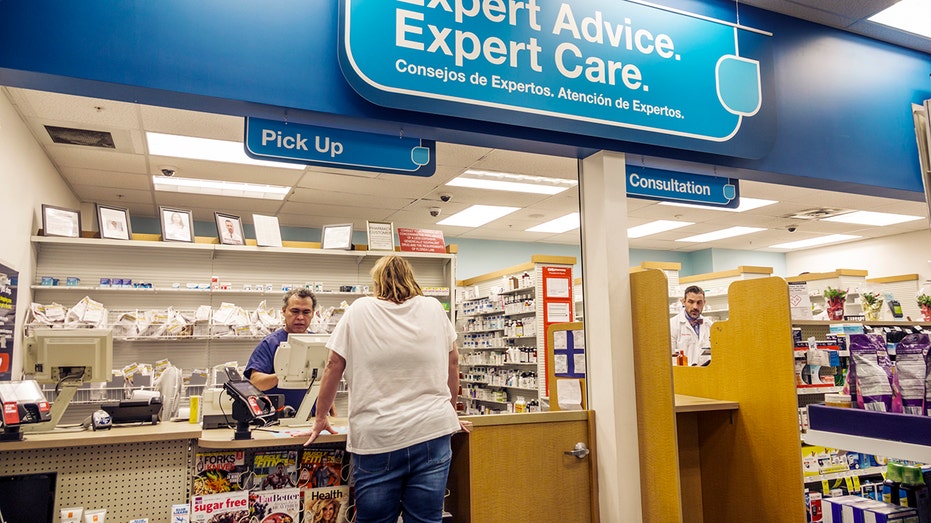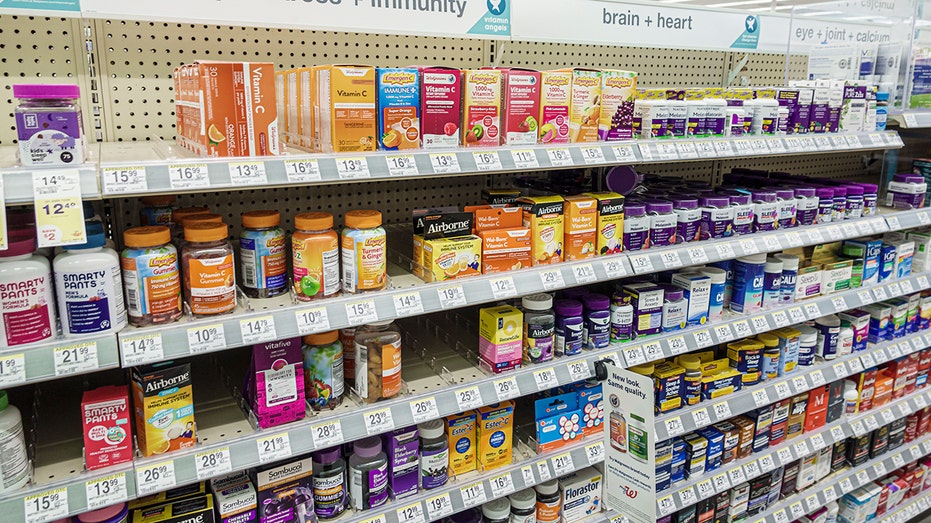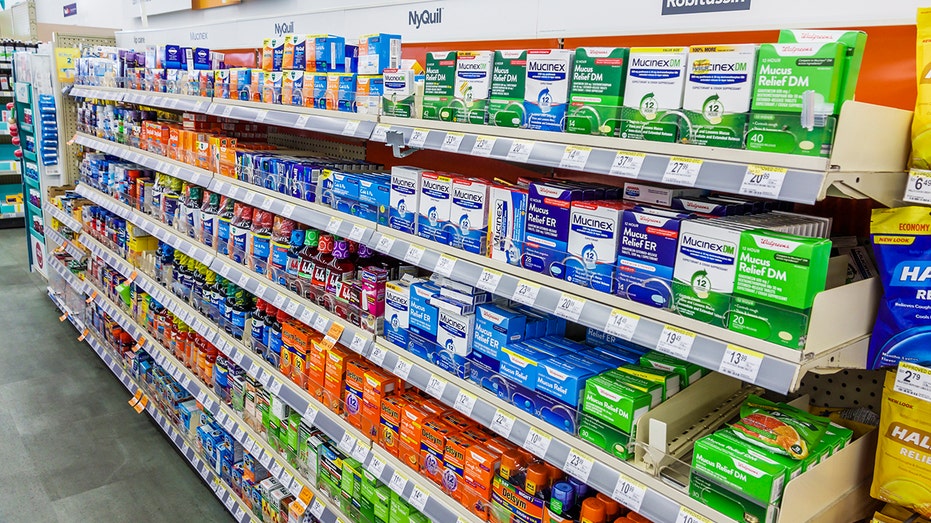Drug shortage swells to national emergency, forcing doctors to find new ways to treat patients
The FDA warned about a shortage of Adderall in early October
By Daniella Genovese
New York Post columnist Karol Markowicz joined 'Kennedy' to discuss her recent op-ed about an increase in prescription drugs given to children during the COVID-19 pandemic.
The nationwide shortage of basic antibiotics and critical medications that treat chronic conditions and bacterial infections has become the latest issue to hit the medical world. Consequently, it is forcing many doctors to rely on alternative medicines to treat patients.
"What was once an unthinkable situation—a shortage of basic antibiotics such as amoxicillin and Augmentin to treat ear and skin infections or even medications such as Albuterol to treat asthma—is now a harsh reality," New York City-based emergency room physician Dr. Robert Glatter told FOX Business.
Even the "shortage of basic medications such as children’s Tylenol—integral to treating fever and mild to moderate pain—is impacting our ability to provide care for our patients," Glatter said.
Currently, the Food and Drug Administration (FDA) has a list of more than 180 current or resolved drug shortages.
He said there have been shortages of antivirals such as Tamiflu, which is used to treat high-risk patients with influenza, as well as diabetic medications such as Ozempic due to the "inappropriate and off-label use" of the medication for weight loss and cosmetic purposes.
Glatter predicted that the drug shortage problem rippling throughout the U.S. could last for at least another year, if not longer.

A CVS Pharmacy pharmacist counter. (Jeffrey Greenberg/Education Images/Universal Images Group via Getty Images / Getty Images)
Gastroenterologist and obesity medicine specialist Dr. Christopher McGowan said he is facing shortages of critical drugs used during surgery.
"IV fluid is an ongoing issue where we sometimes have a supply for one week or two weeks and that's it," McGowan said. "We're always nervous that we could run out of fluid, which is such a critical thing."
There have also been intermittent shortages of key anesthesia medications that are used for most procedures and surgeries, and critical pain medications such as fentanyl, he added.
As a result, McGowan said doctors "are being forced to use alternatives that may not be first line or the optimal treatment for the condition or scenario, or in the best interest of the patient."
Major drugstore chains have also been feeling the effects, especially as flu season ramps up.

Walgreens pharmacy drugstore in Miami Beach, Florida. (Jeffrey Greenberg/Education Images/Universal Images Group via Getty Images / Getty Images)
Rite Aid told FOX Business that the company has been facing some "constraints" with certain amoxicillin products due to an industry-wide shortage. Although it is not experiencing shortages of Tamiflu at this time, the company is facing a high demand for over-the-counter cold and flu medication "due to high illness incidence."
Walgreens also told FOX Business that the company has seen an increased demand for over-the-counter medications.
Earlier this month, the FDA issued a notice warning that there is a shortage of Adderall, which is used to treat attention deficit hyperactivity disorder and narcolepsy.
The ongoing issue has drawn the ire of Republican lawmakers.
Several lawmakers on the GOP Doctors Caucus spoke out about the amoxicillin shortage with Rep. Brad Wenstrup, one of the co-chairmen of the GOP Doctors Caucus, telling Fox News Digital that no "patient or American family should have to worry about finding a necessary and simple antibiotic like amoxicillin."
SHORTAGE OF KEY DRUGS AMID FLU, RSV SURGE LEAVES DOCTORS WORRIED ABOUT ACCESS
According to federal health officials, intermittent or reduced availability of certain products can occur for many reasons, including manufacturing and quality problems, delays and discontinuations.
However, Glatter said that the problem is in part because the U.S. is currently facing challenges in obtaining raw materials. For instance, source materials for manufacturing the active pharmaceutical ingredients in the majority of drugs come from China, which is dealing with limited production and output of raw materials involved in pharmaceutical manufacturing due to rigid lockdown measures, Glatter said.
The U.S. is also dependent on India for a significant number of generic medications, but India also relies on China for the raw materials used to produce active pharmaceutical ingredients, he added.

Walgreens pharmacy, over-the-counter medicine, cough, cold and flu relief. (Jeff Greenberg/Education Images/Universal Images Group via Getty Images / Getty Images)
"Herein lies the problem: We don’t have control of the precious drugs that ultimately are integral to patient care in the U.S.," Glatter said.
McGowan agreed the issue of sourcing materials can be playing into this, but said there are multiple areas in the supply chain that can be impacted.
In the case of the Wegovy shortage, the contract manufacturer in charge of filling the syringes, had to halt production due to a manufacturing issue, which disrupted the entire supply chain. That, coupled with the initial overwhelming demand, led to a nationwide shortage, according to McGowan.
Still, companies and federal health officials are doing what they can to make sure patients still get the medications they need. The FDA told FOX Business that the agency "recognizes the potential impact that reduced availability of certain products may have on health care providers and patients."
The federal agency does not manufacture drugs nor can it "require a pharmaceutical company to make a drug, make more of a drug, or change the distribution of a drug" the FDA said. However, "the public should rest assured the FDA is working closely with numerous manufacturers and others in the supply chain to understand, mitigate and prevent or reduce the impact of intermittent or reduced availability of certain products."
The FDA also said that manufacturers should expect the availability of drugs to continue to increase in the near future.
Meanwhile, Rite Aid said it is currently working with suppliers to meet demand and "mitigate shortages where possible." The company also said its pharmacists can work with a customer’s physician to recommend alternative antibiotics or medications.
The company also recommended that customers talk to pharmacists about over-the-counter options if they do not see their preferred cold or flu treatment products on the shelf.
Walgreens said that it is prepared to continue meeting the needs of its customers and that it is working with a "diverse set of suppliers and distributors to ensure our patients have the products they need most."
No comments:
Post a Comment